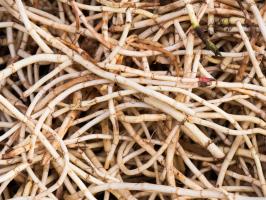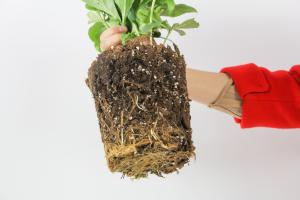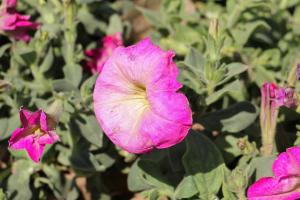What to Feed Your Pot Plants
Gardening and taking care of plants can be a fulfilling hobby. But to achieve thriving pot plants, it’s essential to provide them with the right nutrients. Here are some tips on what to feed your pot plants:
1. Understand the Nutrient Needs of Your Plants
First, it's essential to understand what your pot plants require. Typically, most plants need nitrogen, phosphorus, and potassium (NPK) in different ratios. Nitrogen supports plant growth and leaf production, while phosphorus promotes root development and flower formation. Potassium improves overall plant health and disease resistance.
It's essential to consider the specific needs of your pot plants since some plants may require more of one nutrient than the other. Conduct research on your plant species and the required NPK ratio, or you can also consult with local horticulturists or gardening stores.
2. Use Organic or Synthetic Fertilizers
You can provide nutrients to your pot plants through organic or synthetic fertilizers. Organic fertilizers come from natural sources like compost, manure, and bone meal. These fertilizers are slow-release and provide a steady supply of nutrients to the plant over an extended period.
Synthetic fertilizers, on the other hand, are chemical-based and typically have high concentrations of NPK. These fertilizers are quick-release, providing an almost instant boost of nutrients to the plant. However, excessive use of synthetic fertilizers can harm the plant's long-term health and adversely affect soil health.
3. Choose the Right Fertilizer Type
Choosing the right fertilizer type for your pot plants depends on several factors, such as the plant species, soil type, and growing environment. For example, some plants may require more acidic soil, so using an acidic nitrogen-based fertilizer will be more beneficial.
If you prefer to use organic fertilizers, you can mix different types of organic fertilizers to provide a balanced supply of nutrients to your plants. You can also use natural amendments like gypsum or lime to adjust soil pH to the desired level.
4. Follow Fertilizer Application Instructions
When applying fertilizers to your pot plants, it's essential to follow the instructions on the label. Over-fertilizing can harm the plant's health, leading to stunted growth and reduced fruit production.
Typically, it's advisable to apply fertilizers every two weeks during the growing season, and you can reduce the frequency during the cold months. You can also opt for slow-release fertilizers that require less frequent application.
5. Monitor Your Pot Plants' Progress
The best way to determine whether your pot plants are receiving enough nutrients is to monitor their growth and development. Healthy plants should have vibrant foliage, strong stems, and abundant fruit production.
If you notice that your plants are not thriving, it could be due to a lack of nutrients or an over-fertilization issue. Check the soil pH and nutrient levels to determine the cause of the problem and adjust the fertilizer application accordingly.
In conclusion, taking care of pot plants requires providing them with the right nutrients at the right time. By understanding the nutrient needs of your plants and using the right fertilizer type and application method, you can achieve healthy and thriving pot plants.

 how many times do yo...
how many times do yo... how many planted tre...
how many planted tre... how many pine trees ...
how many pine trees ... how many pecan trees...
how many pecan trees... how many plants comp...
how many plants comp... how many plants can ...
how many plants can ... how many plants and ...
how many plants and ... how many pepper plan...
how many pepper plan...

































